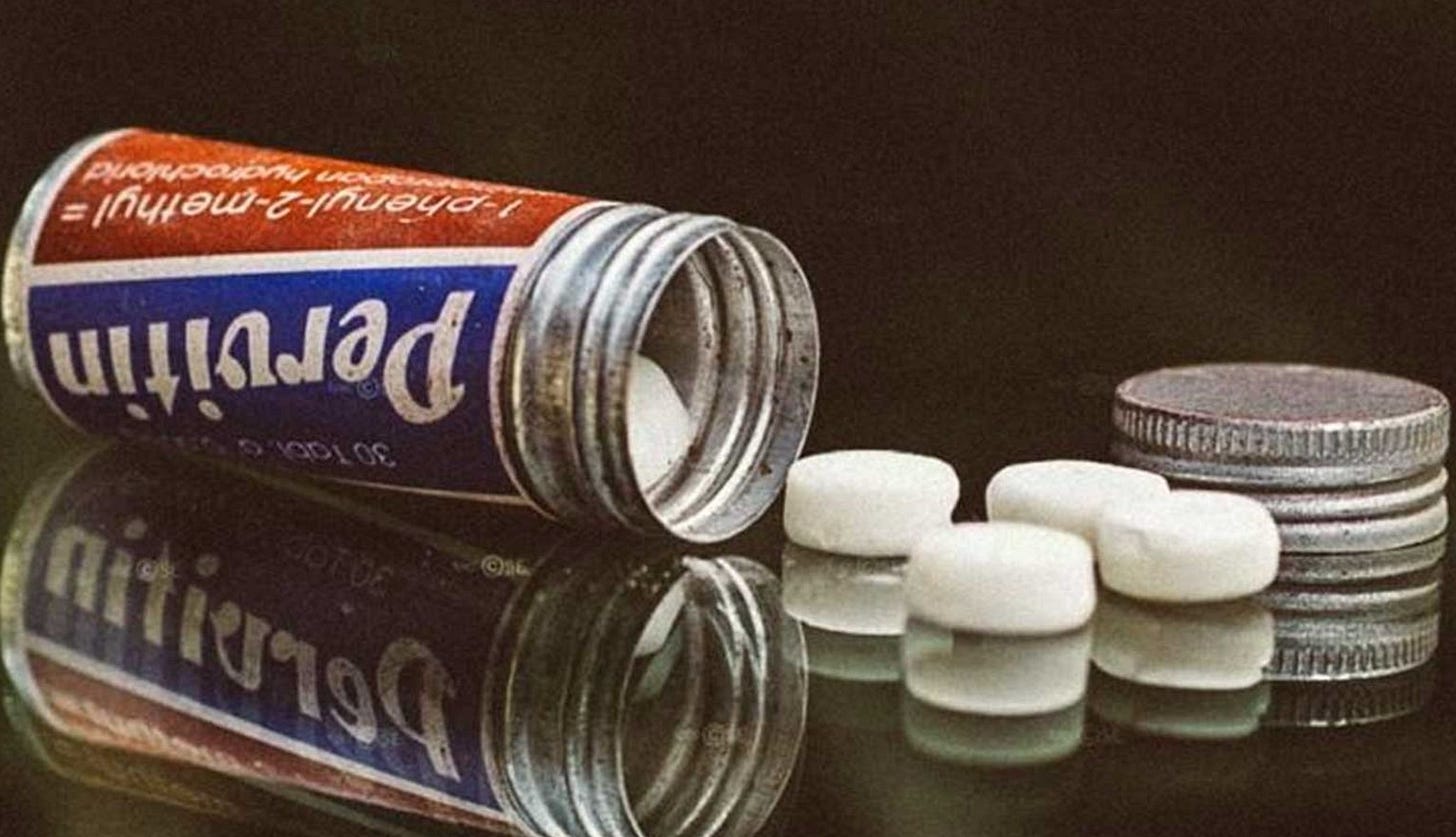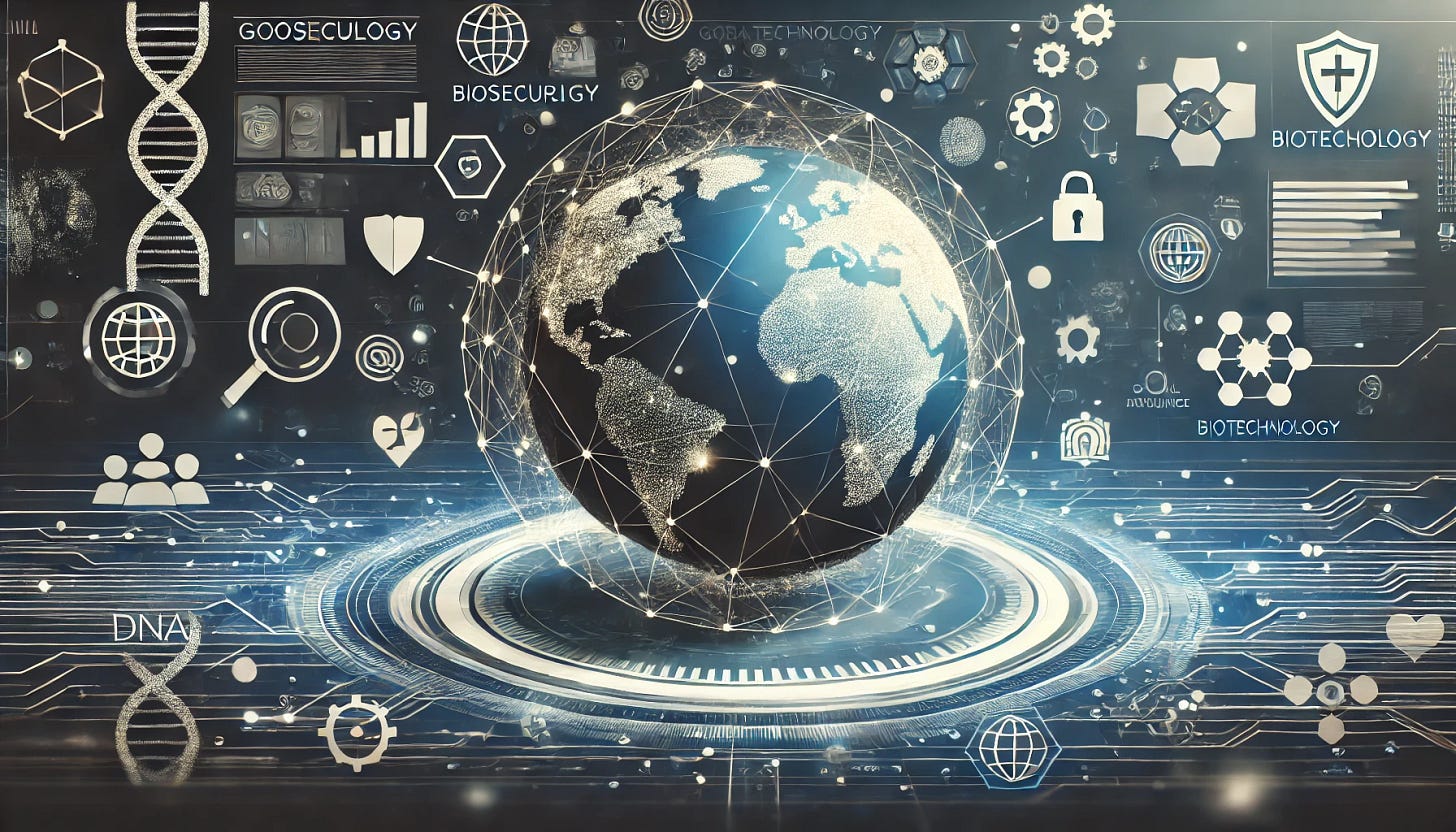Hi everyone,
Today I wanted to share a space I’ve been thinking about a ton lately. A “known unknown.” A space I think we all need to ramp up on, but know very little about. First, a story:
In August, during the Olympics, I was in a meeting with a leader of a three-letter agency. During the Q&A, someone asked the classic question, “What keeps you up at night?” I was surprised by the leader’s response:
"Everyone thinks what keeps me up at night is the next terrorist attack. It’s not. What keeps me up is the possibility that, in 4-8 years, an Olympian could break records by an order of magnitude—and win with an untraceable advantage. Imagine a sprinter winning a race not by a few seconds, but by a whole minute. That terrifies me."
The leader wasn’t worried about medals or competition; they were raising an alarm about bioadvantage—human performance enhanced by technology, with the potential to shift global dynamics if harnessed by other nations. This was my “Plato’s Cave” moment: a glimpse of light from an overlooked dimension of national security.
Two Dimensions of Biosecurity: Assurance and Advantage
As I see it, biosecurity can be viewed through two key lenses: Assurance and Advantage.
Assurance: This involves protection, prevention, and mitigation. For example, a vaccine provides assurance by safeguarding health.
Advantage: This focuses on gaining a competitive edge through biotechnology that enhances performance, like steroids in sports.
Biosecurity represents a dual frontier of both defense and advancement, yet our capital attention remains imbalanced. Most healthcare venture capital (currently $4-4.5B quarterly) flows toward assurance— for example, improving "sickcare" through conventional solutions like provider services, IT systems, workforce management, etc.. In my view, that’s a crucial gap. Of course, bio-assurance (which includes general healthcare) is important. But IMO, the truly transformative opportunity lies in bio-advantage: developing technologies that enhance human capabilities on a global, even galactic, scale.
Advantage: The Power of Bioadvantage in Global Dynamics
Bioadvantage is not a new concept. Nations have historically exploited biological enhancements for gain, sometimes with maximal evil intent. A big example: the Nazis.

History class skips a big part of World War II: that it was not only tactical machinery (e.g. Blitzkrieg) that gave the Nazis the edge in the early years of WWII. There was an under-the-radar bioadvantage— a drug developed in Germany called Pervitin (which soldiers called “Stuka Tablets”). This magic drug would keep soliders up all night, sustaining intense combat. Today, that drug has another name— meth. Yes, if you didn’t know this already, the Germans invented methamphetamine and used it as a bioadvantage in war.
Meth today of course is a terrible street drug, but it was helpful to military scientists. A question on my mind is: what are new-era ways to elevate our biology — for good?
Already there are droves working to answer this exact question, and they roll with the epithet “biohackers.”
Bioadvantage’s Beachhead: Biohacking
Meet the early adopters of bioadvantage: biohackers. With a relentlessly experimental disposition, these hackers seek to optimize health, performance, and longevity. They brag about “improvements” — test out tools like nootropics, transcranial stimulation, sleep biohacks, and biometric management. Quietly, these biohackers are working to improve focus and endurance— pushing the limits of human capability. This is a pretty typical inquiry from a biohacker (38 year old male), looking for hacks:
Of course, there is a fine line between experimentation and naive drug abuse. And I am really not interested in investments in experimental drugs— whatsoever. What I am interested in is tech-driven solutions that make our bodies more productive, resilient, acute, creative, long-living— and so on. Put another way, tech that recasts evolutionary trajectory. That leapfrogs Darwinian constraint.
With that in mind, here are a handful of frontiers.
Beyond Human: The Underground Revolution of DIY Evolution
AI-Powered Biohacking: Open-source tools like Google DeepMind’s AlphaFold3 are democratizing drug discovery and protein modeling, enabling biohackers to personalize health solutions.
Environmental Detox and Resilience: Biohackers in polluted areas use supplements, red light therapy, and air filtration to combat toxins and build resilience against environmental stress.
Space Adaptation Biohacking: With rising interest in space exploration, biohackers are developing ways to adapt to extreme environments, focusing on radiation resilience and muscle atrophy prevention.
Cognitive and IQ Enhancement: Techniques like neurostimulants and mental training aim to boost cognitive performance, resilience, and processing power.
Stress Tolerance Training: High-stress tolerance is pursued through exposure therapy, meditation, and tracking biomarkers like cortisol and heart rate variability.
Personalized Nutrition and Supplementation: Using AI and genetic data, biohackers tailor nutrition plans to optimize outcomes like cognitive function and metabolic efficiency.
Open-Source Collaboration in Biohacking: Biohackers and researchers are using open-source AI tools to advance the field, encouraging collective innovation.
Microdosing Psychedelics for Mental Health: Microdosing is gaining traction for enhancing creativity, emotional resilience, and introspection. I am personally not a fan of this trend at all (which I view as net-detrimental, but it is intriguing).
Biotech for Everyday Health Optimization: Biohackers integrate biotech, like genetic testing and nootropics, into daily routines for optimized living.
Biohacking for Identity and Self-Redefinition: Beyond physical enhancement, biohacking allows individuals to redefine aspects of themselves, challenging societal constructs around identity.
Why Bioadvantage's Time Has Come: A Perfect Storm
The convergence of technology possibility and national security necessity has created an unprecedented moment for bioadvantage. AI, CRISPR, and affordable DNA synthesis have democratized genetic manipulation, while COVID-19's $16 trillion toll exposed critical vulnerabilities and accelerated public-private innovation. As countries race for biotech supremacy, the implications extend beyond medicine—from cognitive enhancement and longevity in humans to agricultural breakthroughs in climate-resistant crops and lab-grown meat.
Of course, the ethical considerations of all of this need meticulous investigation and consideration. As do the careful balance between innovation and safety.
Call to Action: Learning More
I consider bio-advantage a space I am curious about. Clearly, I have a lot to learn. But if you have any thoughts on it— or know companies building in this space— I would love to learn more.
As always, some cool jobs at cool companies below!
Pete
Jobs! Reach out if any pique your interest
Dune Security - AI-driven cyber
Picogrid - Autonomous platforms
Red 6 - Flight training
Trunk Tools - AI agents for construction
Edgescale AI - AI for physical infra
Multitude Insights - Police Force AI






